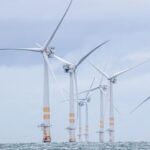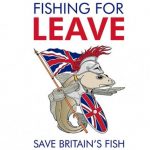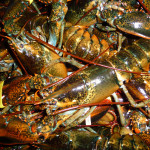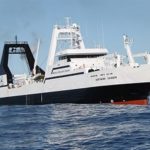Daily Archives: June 23, 2016
ENGO Oceana Canada says Canada’s fishery’s are in severe decline
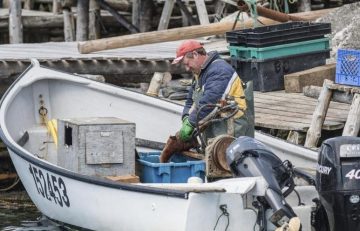 A leading ocean conservation group sounded an alarm over the state of Canada’s fishery Thursday in a new report that reveals that less than 25 per cent of the country’s fish stocks are considered healthy and the status of almost half is unknown. In the most comprehensive public study ever conducted on the state of Canada’s fish, the report outlines the extent to which overfishing and decades of poor management practices have severely depleted Canada’s fish populations. The status of a whopping 45 per cent of stocks couldn’t be determined due to an absence of basic or up-to-date information, which the report attributed to a lack of transparency in Canada’s fisheries. The report called the latter a “long-standing problem, exacerbated by the previous federal government’s cuts to Canada’s once world-class fisheries science capacity and by the rigorously enforced policy of discouraging scientists from speaking about their work. Read the rest here, and hang on. 20:40
A leading ocean conservation group sounded an alarm over the state of Canada’s fishery Thursday in a new report that reveals that less than 25 per cent of the country’s fish stocks are considered healthy and the status of almost half is unknown. In the most comprehensive public study ever conducted on the state of Canada’s fish, the report outlines the extent to which overfishing and decades of poor management practices have severely depleted Canada’s fish populations. The status of a whopping 45 per cent of stocks couldn’t be determined due to an absence of basic or up-to-date information, which the report attributed to a lack of transparency in Canada’s fisheries. The report called the latter a “long-standing problem, exacerbated by the previous federal government’s cuts to Canada’s once world-class fisheries science capacity and by the rigorously enforced policy of discouraging scientists from speaking about their work. Read the rest here, and hang on. 20:40
Coast Guard medevacs ailing crewmember north of Cold Bay, Alaska
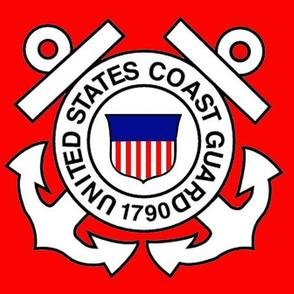 A Coast Guard Air Station Kodiak MH-65 Dolphin helicopter crew, deployed aboard the Coast Guard Cutter Midgett, medevaced an ailing crewmember aboard the fishing vessel Seafreeze Alaska approximately 195 miles north of Cold Bay, Alaska, Thursday. The helicopter crew hoisted the 21-year-old man, who reportedly lost consciousness for 45 minutes, and transferred him to awaiting Guardian Flight emergency medical personnel in Cold Bay. Coast Guard 17th District watchstanders were notified at approximately 7:45 a.m. by personnel at Health Force Partners of a medical situation aboard the Seafreeze Alaska. Watchstanders consulted the duty flight surgeon who recommended the medevac. Crewmembers from Midgett rendezvoused with the vessel north of Cold Bay and launched the rescue helicopter crew. While the helicopter was airborne, Midgett remained on scene to act as a support platform for the rescue helicopter. Once the hoist was complete, the helicopter refueled aboard the cutter before proceeding to Cold Bay. Link 20:16
A Coast Guard Air Station Kodiak MH-65 Dolphin helicopter crew, deployed aboard the Coast Guard Cutter Midgett, medevaced an ailing crewmember aboard the fishing vessel Seafreeze Alaska approximately 195 miles north of Cold Bay, Alaska, Thursday. The helicopter crew hoisted the 21-year-old man, who reportedly lost consciousness for 45 minutes, and transferred him to awaiting Guardian Flight emergency medical personnel in Cold Bay. Coast Guard 17th District watchstanders were notified at approximately 7:45 a.m. by personnel at Health Force Partners of a medical situation aboard the Seafreeze Alaska. Watchstanders consulted the duty flight surgeon who recommended the medevac. Crewmembers from Midgett rendezvoused with the vessel north of Cold Bay and launched the rescue helicopter crew. While the helicopter was airborne, Midgett remained on scene to act as a support platform for the rescue helicopter. Once the hoist was complete, the helicopter refueled aboard the cutter before proceeding to Cold Bay. Link 20:16
Luke L. Gurney- lived life to the fullest and was the “best’’ husband, father, son and friend
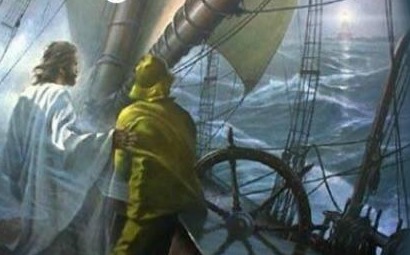 Luke Leonard Luscomb Gurney passed away on June 20, 2016. He lived life to the fullest and was the “best’’ husband, father, son and friend that anyone would want. Since 2009 he has fished commercially for whelk (conch), sea bass and scup in waters surrounding the Vineyard and Nantucket. He has lived on the Vineyard since 1994 but to anyone who knew him he was a “born and bred islander.” He had a passion for fishing and was the best at it according to his peers. However, more than fishing he loved his family with all his heart. His wife, Robyn Gurney and his two sons, Jacob and Sam loved him and will miss him dearly. He is also survived by his parents John and Linda Gurney, his sister Mary Gurney-Sylvia and her husband David Sylvia and their children, Grace, Luke, Meredith and Mairwen, his brother Joshua Gurney, his children Sophie and Elliot. With our deepest sympathy, Read the rest here Help Support Luke Gurney’s Family In The Days To Come, click here 19:37 This is a very nice article about Luke Gurney. Islanders Mourn Fisherman, Father and Beacon of Light click here 20:56
Luke Leonard Luscomb Gurney passed away on June 20, 2016. He lived life to the fullest and was the “best’’ husband, father, son and friend that anyone would want. Since 2009 he has fished commercially for whelk (conch), sea bass and scup in waters surrounding the Vineyard and Nantucket. He has lived on the Vineyard since 1994 but to anyone who knew him he was a “born and bred islander.” He had a passion for fishing and was the best at it according to his peers. However, more than fishing he loved his family with all his heart. His wife, Robyn Gurney and his two sons, Jacob and Sam loved him and will miss him dearly. He is also survived by his parents John and Linda Gurney, his sister Mary Gurney-Sylvia and her husband David Sylvia and their children, Grace, Luke, Meredith and Mairwen, his brother Joshua Gurney, his children Sophie and Elliot. With our deepest sympathy, Read the rest here Help Support Luke Gurney’s Family In The Days To Come, click here 19:37 This is a very nice article about Luke Gurney. Islanders Mourn Fisherman, Father and Beacon of Light click here 20:56
Sweden has until July 31 for scientific justification claiming that North American lobster is invasive
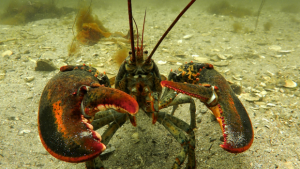 European Union scientists have given Sweden until July 31 to address U.S. and Canadian objections to Sweden’s claims that North American lobster is an invasive species that should be subject to an import ban. The scientific forum on invasive species met Wednesday to discuss Sweden’s claim that North American lobsters, which have been found in small numbers off the coasts of Sweden, Norway and Great Britain, pose a threat to the smaller European lobster. The forum asked Sweden to update its scientific justification for labeling the North American lobster as an invader to address objections raised by U.S. and Canadian scientists this month, including the argument that Sweden can’t show proof of an invasion despite decades of imports, or that offspring of the two species can spawn a second-generation hybrid. Read the rest here 17:28
European Union scientists have given Sweden until July 31 to address U.S. and Canadian objections to Sweden’s claims that North American lobster is an invasive species that should be subject to an import ban. The scientific forum on invasive species met Wednesday to discuss Sweden’s claim that North American lobsters, which have been found in small numbers off the coasts of Sweden, Norway and Great Britain, pose a threat to the smaller European lobster. The forum asked Sweden to update its scientific justification for labeling the North American lobster as an invader to address objections raised by U.S. and Canadian scientists this month, including the argument that Sweden can’t show proof of an invasion despite decades of imports, or that offspring of the two species can spawn a second-generation hybrid. Read the rest here 17:28
Today’s deep thoughts from a PETA person – Try the fish-free fish fingers
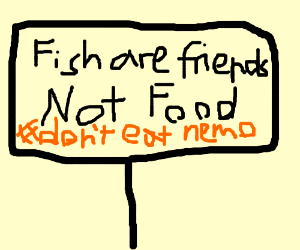 In all the talk about the EU Common Fisheries Policy, one party has been entirely ignored – the fish. Fish don’t get a vote, but if they did they’d surely want us to leave them alone so they might stay in the sea. More than one trillion fish and other sea animals die at the hands of humans each year. That’s about 143 for every human. Deep-sea trawling is responsible for widespread damage to coral reefs and underwater mountains and the ecosystems that depend on these habitats are crumbling. This reckless destruction of the ocean is both cruel and unsustainable. The good news is that delicious cruelty-free options – such as fish-free fish fingers, faux-fish cakes and mock prawns – are delicious, affordable and easy to find. Jennifer White, People for the Ethical Treatment of Animals Link 16:57
In all the talk about the EU Common Fisheries Policy, one party has been entirely ignored – the fish. Fish don’t get a vote, but if they did they’d surely want us to leave them alone so they might stay in the sea. More than one trillion fish and other sea animals die at the hands of humans each year. That’s about 143 for every human. Deep-sea trawling is responsible for widespread damage to coral reefs and underwater mountains and the ecosystems that depend on these habitats are crumbling. This reckless destruction of the ocean is both cruel and unsustainable. The good news is that delicious cruelty-free options – such as fish-free fish fingers, faux-fish cakes and mock prawns – are delicious, affordable and easy to find. Jennifer White, People for the Ethical Treatment of Animals Link 16:57
Do sharks survive after the hook?
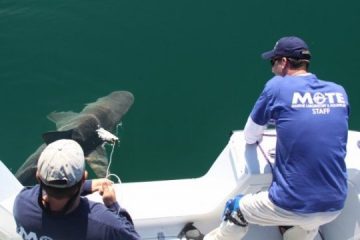 Fitbit-like sensors are the best tools for monitoring whether sharks survive catch-and-release fishing — essential data for fisheries management — according to a peer-reviewed study published June 23 by scientists from Mote Marine Laboratory in Sarasota, Florida. The study, published online in the scientific journal Fisheries Research, is the first to show that motion-sensing accelerometer tags detect whether a shark has survived and how it recovers from capture stress with much greater certainty than other prevailing technologies. Usually scientists fit sharks with satellite or acoustic transmitters to infer whether a shark has survived using indirect signals like location or depth. In contrast, accelerometers measure sharks’ fine-scale movements directly and with high resolution, including every tail beat, body tilt, ascent and descent. Read the rest here 16:41
Fitbit-like sensors are the best tools for monitoring whether sharks survive catch-and-release fishing — essential data for fisheries management — according to a peer-reviewed study published June 23 by scientists from Mote Marine Laboratory in Sarasota, Florida. The study, published online in the scientific journal Fisheries Research, is the first to show that motion-sensing accelerometer tags detect whether a shark has survived and how it recovers from capture stress with much greater certainty than other prevailing technologies. Usually scientists fit sharks with satellite or acoustic transmitters to infer whether a shark has survived using indirect signals like location or depth. In contrast, accelerometers measure sharks’ fine-scale movements directly and with high resolution, including every tail beat, body tilt, ascent and descent. Read the rest here 16:41
Debate over closing of B.C. salmon cannery goes to federal committee
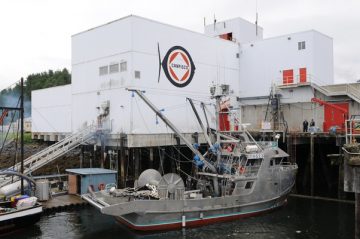 The debate over the closing of B.C.’s last salmon-canning operation shifted to Ottawa this month, where a federal committee heard sharply differing opinions on the issue. While the union representing plant workers decried changes at the Oceanside Cannery in Prince Rupert and called for new policies in response, the plant’s owner maintained relatively few jobs would be affected and that no policy changes are required. The committee also heard consumer tastes are shifting to fresh and frozen fish over the canned product that was once a mainstay on the B.C. coast. “Maintaining a large plant with many canning lines for limited production was not viable,” Rob Morley, vice-president of Canadian Fishing Co., told the standing committee on fisheries and oceans earlier this month. Read the story here 14:04
The debate over the closing of B.C.’s last salmon-canning operation shifted to Ottawa this month, where a federal committee heard sharply differing opinions on the issue. While the union representing plant workers decried changes at the Oceanside Cannery in Prince Rupert and called for new policies in response, the plant’s owner maintained relatively few jobs would be affected and that no policy changes are required. The committee also heard consumer tastes are shifting to fresh and frozen fish over the canned product that was once a mainstay on the B.C. coast. “Maintaining a large plant with many canning lines for limited production was not viable,” Rob Morley, vice-president of Canadian Fishing Co., told the standing committee on fisheries and oceans earlier this month. Read the story here 14:04
Tin Can Bay businessman rejects recreational fisherman’s call for net fishing ban
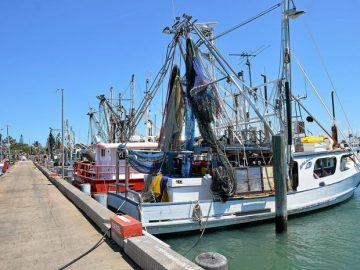 A Tin Can Bay businessman has rejected calls by recreational fishing spokesman Lindsay Dines for a net fishing ban to be implemented from the Mary River to Noosa. Mr Dines has strongly backed moves to World Heritage list the Cooloola section of Great Sandy Marine Park and the Sandy Strait. Cooloola Coast Seafoods owner Warren Sullivan sells local and imported seafood, fish and chips. He buys fish direct from local fishermen, processes them on site and then sells it on site. “I wonder what scientific evidence (Mr Dines) has about the fish fleeing nets or is he just making claims with no evidence to back this up?” Mr Sullivan asks. Read the rest here 10:54
A Tin Can Bay businessman has rejected calls by recreational fishing spokesman Lindsay Dines for a net fishing ban to be implemented from the Mary River to Noosa. Mr Dines has strongly backed moves to World Heritage list the Cooloola section of Great Sandy Marine Park and the Sandy Strait. Cooloola Coast Seafoods owner Warren Sullivan sells local and imported seafood, fish and chips. He buys fish direct from local fishermen, processes them on site and then sells it on site. “I wonder what scientific evidence (Mr Dines) has about the fish fleeing nets or is he just making claims with no evidence to back this up?” Mr Sullivan asks. Read the rest here 10:54
P.E.I. Fishermen’s Association favors conserving the recourse over extending the season
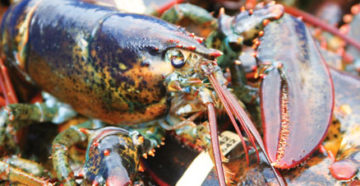 The Prince Edward Island Fishermen’s Association won’t be asking the federal government to extend the spring lobster fishery despite a slow start to the season. There was an expectation in recent days that Island lobster fishermen would seek an extension to the spring season. In a responsible decision Wednesday, fishermen announced they would not pursue that option. Everyone on this province is well aware the weather in May and deep into June was predominantly cold and damp. Things finally improved – or at least got warmer – on the weekend, once you discount the gale force winds Saturday afternoon, Sunday and Monday. Over those first seven weeks of the fishing season, a number of days were lost because of windy conditions. Many other days on the water were not pleasant, with persistent bone-chilling easterly or northerly winds. Read the rest here 10:12
The Prince Edward Island Fishermen’s Association won’t be asking the federal government to extend the spring lobster fishery despite a slow start to the season. There was an expectation in recent days that Island lobster fishermen would seek an extension to the spring season. In a responsible decision Wednesday, fishermen announced they would not pursue that option. Everyone on this province is well aware the weather in May and deep into June was predominantly cold and damp. Things finally improved – or at least got warmer – on the weekend, once you discount the gale force winds Saturday afternoon, Sunday and Monday. Over those first seven weeks of the fishing season, a number of days were lost because of windy conditions. Many other days on the water were not pleasant, with persistent bone-chilling easterly or northerly winds. Read the rest here 10:12
NMFS looks at catch reduction of Atlantic herring
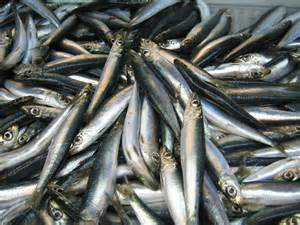 The National Marine Fisheries Service might reduce the herring catch limit by about 3 percent to slightly less than 105,000 metric tons. The limit was a little less than 108,000 metric tons for the 2013 to 2015 period; any new limit would apply to the years 2016 to 2018. The proposal is up for public comment until July 21. The herring fishery takes place off of New England and the mid-Atlantic, but is principally based in Maine and Massachusetts, with a substantial amount of herring also coming ashore in Rhode Island and New Jersey. It was worth a little less than $30 million in 2014, when fishermen caught about 92,000 metric tons. Read the rest here 09:16
The National Marine Fisheries Service might reduce the herring catch limit by about 3 percent to slightly less than 105,000 metric tons. The limit was a little less than 108,000 metric tons for the 2013 to 2015 period; any new limit would apply to the years 2016 to 2018. The proposal is up for public comment until July 21. The herring fishery takes place off of New England and the mid-Atlantic, but is principally based in Maine and Massachusetts, with a substantial amount of herring also coming ashore in Rhode Island and New Jersey. It was worth a little less than $30 million in 2014, when fishermen caught about 92,000 metric tons. Read the rest here 09:16


































